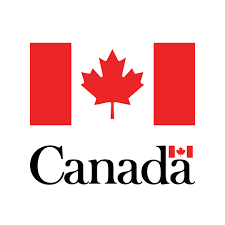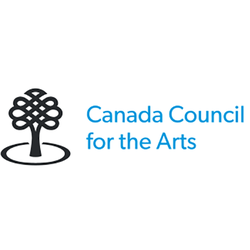
Open
Copyright
Last Update: January 12, 2026
Canada
Canadian services for copyright registration, search, and related resources
Other Support
At a glance
Funding available
Financing goals
No objectives are currently available
Eligible Funding
- No Condition
Timeline
- Open Date : November 14, 2019
Eligible candidates
Eligible Industries
- Information and cultural industries
Location
- Canada
Legal structures
- Financial cooperative
- Non-profit
- Public or Parapublic institution
- For-profit business
- Sole proprietorship
- Social economy enterprise
- Non-financial cooperative
Annual revenue
- All revenue ranges
Organisation size
- All organization sizes
Audience
- All groups
Non-profit candidates
Sector of operation
- Culture and Arts
- Business Associations
- Professional Associations
Target groups
- Business owners / entrepreneurs
- Artists / creatives
Revenue structures
- All structures
Scope
- All dimensions
Overview
This is not a funding program and provides no grant amount; it is the Canadian Intellectual Property Office’s copyright service that helps individuals and businesses learn about copyright and register a copyright. Eligible activities include searching copyrights, registering a copyright (including e-filing), transferring ownership, requesting a certificate of correction, ordering documents, accessing forms, and paying applicable fees.
Activities funded
- Registering a copyright in Canada.
- Transferring (assigning) ownership of a copyright.
- Requesting a certificate of correction for an existing copyright registration.
- Searching existing copyright registrations.
- Ordering documents related to copyright registrations.
Examples of admissible projects:
$ 12,000
Registering copyrights for an independent music album
$ 14,000
Copyright registration for a collection of digital artworks
$ 10,000
Registering copyrights for a theatre production script
$ 20,000
Copyrighting a documentary film about Canadian wildlife
$ 25,000
Copyright registration for an innovative software tool
$ 16,000
Copyright registration for a series of children's books
Eligibility
Eligible expenses
- Copyright registration fees
- Correspondence fees with the Canadian Intellectual Property Office (CIPO)
- Electronic service fees related to copyrights
Eligible geographic areas
- Canada
Selection criteria
There are evaluation and selection criteria for this grant.
- Evaluation based on the originality, relevance, and feasibility of the proposed project.
- Selection criteria also include the applicant's qualifications, experience, and budget justification.
- Additional consideration may be given to projects that demonstrate potential for significant impact or innovation.
How to apply
1
Prepare your application for copyright registration by ensuring your work meets the conditions set out in the Copyright Act. This includes being the author of the work and meeting citizenship or residency requirements.
2
Submit your application to the Canadian Intellectual Property Office (CIPO) along with the required fees. The application process does not involve CIPO verifying the claims made in the application.
3
Await the processing of your application and the issuance of a certificate of registration, which serves as evidence of copyright ownership. The certificate may be challenged in a court proceeding.
Additional information
- As of December 30, 2022, the general term of copyright protection in Canada changed from 50 to 70 years after the author’s death.
- This change does not affect works that were already in the public domain.
- The change is linked to amendments to the Copyright Act (sanctioned in June 2022).
- CIPO highlights an e-filing option that can reduce processing time (registration in 7 days).
Apply to this program
Frequently Asked Questions about the Copyright Program
Here are answers to the most common questions about the Copyright. This section explains what the program is, how much funding is available, eligibility requirements, application deadlines, and other important details to help you determine if this grant is right for your business.
What is the Copyright?
How much funding can be received?
What expenses are eligible under Copyright?
What is the deadline to apply?
Is the Copyright a grant, loan, or tax credit?
Who are the financial supporters of the Copyright?
Who is eligible for the Copyright program?
Who can I contact for more information about the Copyright?
Where is the Copyright available?
Apply to this program
More programs like this

Grant and FundingClosed
Industrial Research Assistance Program (IRAP) – AI Assist
National Research Council Canada (NRC)Supports Canadian SMEs in adopting and integrating advanced AI solutions

Partnering and CollaborationGrant and FundingOpen
Strategic Innovation Fund (SIF)
Innovation, Science and Economic Development Canada (ISED)Strategic Innovation Fund supports transformative Canadian economic investments

Grant and FundingClosed
Creative Export Canada (CEC) — Export-Ready Stream
Canadian HeritageFunding for Canadian creative industry exports

Grant and FundingClosed
ISED — Artificial intelligence (AI)
Innovation, Science and Economic Development Canada (ISED)Supports testing innovative AI prototypes for Canadian government needs

Grant and FundingOpen
Global Innovation Clusters
Innovation CanadaFinancial assistance to work in collaboration on innovation projects


Grant and FundingLoans and Capital investmentsClosed
Production program — French market budgets under $3.5M
Telefilm CanadaFinancing for French-language feature films

Grant and FundingOpen
IP for Business
Canadian Intellectual Property Office (CIPO)Intellectual property training, tools and expertise

Wage Subsidies And InternsOpen
Canada Book Fund (CBF) — Support for Organizations – Internships
Canadian HeritageFinancial support for internships in the book industry

Grant and FundingClosed
Arts Abroad — Residencies
Canada Council for the Arts (CCA)Grant for international arts research or networking
Sign up to our platform to access the Copyright information sheet for free
Get access to 4,000+ programs, practical guides, personalized alerts, and an AI assistant to support your grant applications.